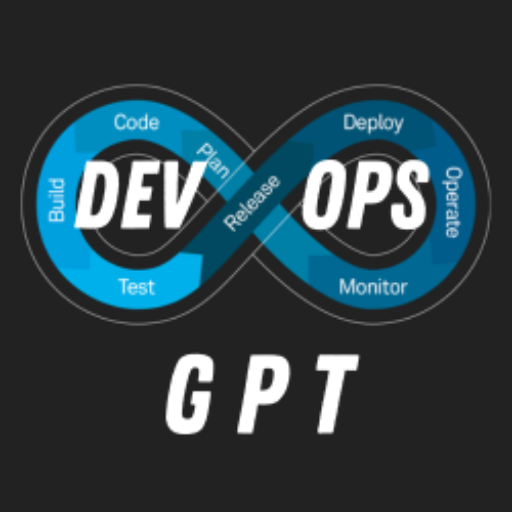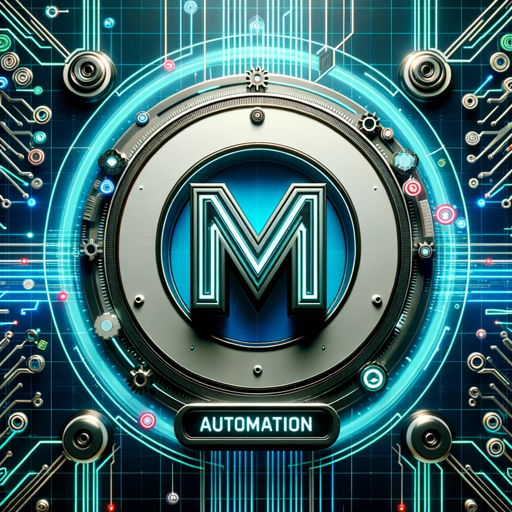Ansible Automation AI-Ansible automation for IT infrastructure
AI-driven IT automation made simple
How do I start with Ansible automation?
Can you explain Kubernetes integration with Ansible?
What are the best practices for Ansible playbooks?
How to troubleshoot common issues in Ansible?
Related Tools
Load MoreAutoGPT Agent
Your personal AI agent will plan, research, strategize and work to complete tasks semi-autonomously using multi-modal tools as needed. Complete tasks with just a few keystrokes. ☑️ v1.3

DevOps GPT
AI coding expert for all cloud operation needs. Responds concisely with cost efficient and secure practices.

Make Academy Guide
Your make.com AI automation guide.

Ansible Guru
Senior DevOps Engineer specializing in Ansible

Ansible
Senior DevOps Engineer specialized in Ansible

Automation Hacker
I'm an expert in make.com automation, offering advice on workflows and integrations.
20.0 / 5 (200 votes)
Introduction to Ansible Automation AI
Ansible Automation AI is a powerful tool designed to automate IT infrastructure tasks, aimed at simplifying processes and reducing manual intervention. It is built around Ansible's core capabilities, such as configuration management, application deployment, and orchestrating workflows across diverse environments (cloud, on-premise, containers, etc.). Ansible Automation AI integrates human-readable playbooks written in YAML, making it accessible to both beginner and advanced users. Scenarios like provisioning a multi-tier application or automating a security patch deployment across hybrid clouds illustrate how it can scale and streamline operations. Ansible’s agentless architecture, using SSH or WinRM, makes it lightweight and secure.

Key Functions of Ansible Automation AI
Configuration Management
Example
Managing configuration consistency across Linux servers in a data center.
Scenario
In a scenario where a company has hundreds of servers, Ansible can be used to ensure that configurations remain uniform. By automating configuration updates and enforcing compliance, administrators can prevent configuration drift and reduce downtime.
Application Deployment
Example
Deploying a containerized application across Kubernetes clusters.
Scenario
A DevOps team may use Ansible to automate the deployment of microservices in containers across different Kubernetes clusters. This would reduce the risk of human error during deployment, ensure consistency across environments, and shorten deployment cycles.
Infrastructure as Code (IaC)
Example
Automating the creation and teardown of cloud infrastructure.
Scenario
Ansible allows teams to define their cloud infrastructure as code. In a cloud migration project, the team can automate the provisioning of virtual machines, storage, and networking resources on AWS, reducing manual setup time and avoiding configuration inconsistencies.
Ideal Users of Ansible Automation AI
System Administrators
System administrators in both Linux and Windows environments can use Ansible Automation AI to manage and automate tasks such as patch management, user provisioning, and server updates. This significantly reduces manual workload and improves system reliability by automating repetitive tasks.
DevOps Engineers and Cloud Architects
DevOps engineers benefit from Ansible Automation AI by automating complex CI/CD pipelines, orchestrating cloud infrastructure, and managing containerized applications. It helps architects implement Infrastructure as Code (IaC) principles across hybrid and multi-cloud environments, improving speed, agility, and governance.

How to Use Ansible Automation AI
Visit aichatonline.org
Go to aichatonline.org for a free trial. No login or ChatGPT Plus is required.
Understand Requirements
Ensure you have basic knowledge of IT automation concepts, such as infrastructure management and YAML syntax.
Define Use Cases
Identify the tasks you want to automate, such as app deployment, system configuration, or Kubernetes orchestration.
Create Playbooks
Develop Ansible playbooks based on your automation requirements. These scripts define the tasks to be automated.
Run and Monitor
Execute your playbooks and use the tool’s monitoring capabilities to track execution and performance.
Try other advanced and practical GPTs
WriteAid
AI-driven writing assistance made easy

Unity Game Development Mentor
AI-powered guidance for Unity developers

Code Smart
AI-powered smart code generation tool

Notion Navigator
AI-powered workspace navigation and optimization.

Copywriter Helpdesk
Smart AI Content Writing Solutions
Wireshark and Scapy Network Analyst
AI-Powered Network Analysis and Security

Red Hat Enterprise Linux Assistant
AI-powered expert assistant for Red Hat Enterprise Linux

Lens Studio Buddy
Your AI-powered Snap Lens assistant.

公众号热门文章作者
AI-powered articles with engaging twists

Перефразировать Текст
AI-powered rewording for clear, unique content.

Calligraphy
AI-Powered Chinese Calligraphy for Names

Investing AI
AI-Powered Financial Wisdom

- Configuration Management
- App Deployment
- Cloud Automation
- Kubernetes Orchestration
- Security Patching
Ansible Automation AI FAQs
What is Ansible Automation AI?
Ansible Automation AI is a tool designed to automate IT infrastructure tasks, including cloud services, Kubernetes, and system administration.
Do I need coding skills to use it?
No, Ansible uses human-readable YAML, making it accessible for users without extensive coding experience.
How does it integrate with Kubernetes?
Ansible Automation AI can automate Kubernetes cluster management, handling tasks such as pod deployment, storage configuration, and scaling.
Can Ansible be used for cloud automation?
Yes, it supports cloud providers like AWS, Azure, and Google Cloud, allowing automation of cloud-based infrastructures.
How does Ansible ensure security?
Ansible follows an agentless architecture using SSH and WinRM, reducing security risks associated with agents on nodes.